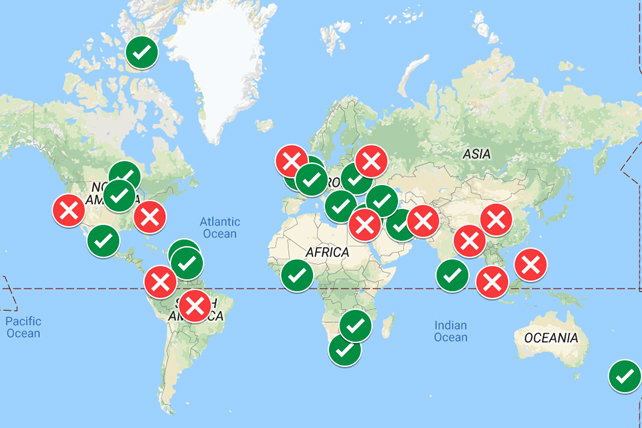The Premier of South Australia has committed to sending sniffer dogs into state schools to find young people in possession of drugs, particularly methamphetamine – commonly referred to as “ice”.
On May 15, Premier Steven Marshall vowed to implement his Stop the Scourge in Schools policy, which he had pledged during his election campaign. The policy, Marshall’s website states, intends to “make every effort to stop the scourge of drugs – including by taking preventative actions in our schools [because] drugs such as ice destroy potential, damage families, and waste lives”.
Specifically, “this will include enabling police sniffer dogs to be used as an effective tool in the fight against drugs in our schools. Sniffer dogs will be able to be used on campus at the request of the school leadership, or at the direction of [the South Australia police]”.
Speaking at his party’s annual meeting in 2017, Marshall said "we won't be sniffing individual classrooms and students when they are present, but we will go into locker rooms, we will inspect bags and we will do every single thing we possibly can. This will be compulsory in our state schools and we invite the private schools to also opt in."
The compulsory nature of this programme in state schools, but not private schools, suggests that children from the poorer sections of Australian society are more likely to face the brunt of these law enforcement tactics – including criminalisation.
Nonetheless, the move has been endorsed by Prime Minister Malcolm Turnbull, who promised to back Marshall’s proposals in 2017. He described methamphetamine as a “shocking, miserable menace”, and announced that he was “inspired to hear the passion of … Steven Marshall talking about how he is determined that the government he will lead will keep the South Australian children free from the scourge of drugs”.
Drug Use Among Young People
Adelaide, South Australia’s capital, continues to have one of the highest rates of methamphetamine consumption in the country, according to the 2016 National Drug Strategy Household Survey. However, the rate of use among teenagers has dropped dramatically over recent decades; the proportion of 14-19 year olds reporting recent methamphetamine use dropped from 6.2 per cent in 2001 to 0.8 per cent in 2016. This adheres to a gradual decrease in reported drug use among teens reported by other statistical surveys.
This suggests a discrepancy between the rate of drug use among young people and the reasoning behind the introduction of Marshall’s controversial policy.
An Effective Tactic?
Associate professor of the University of Adelaide’s School of Medicine, addiction specialist Dr Rob Ali, told InDaily that Marshalls’ proposal “hasn’t got a strong evidence base to support [it], [is] likely to increase problems rather than decrease them, [and is] extraordinarily expensive for little or no yield”. He warned that sending sniffer dogs into schools could encourage children to use more dangerous substances, as some young people may seek substances which are difficult for sniffer dogs to recognise.
The approach has been criticised by the leader of the South Australia opposition, Peter Malinauskas – who has previously served as the state’s police minister, as “absurd” and “ridiculous”. The Australian Ombudsman has described the use of sniffer dogs as ineffective; “overwhelmingly, the use of drug detection dogs has led to public searches of individuals in which no drugs were found, or to the detection of (mostly young) adults in possession of very small amounts of cannabis for personal use”.
The Battleground for Drug Policy in Australia
Harm reduction initiatives taking place elsewhere in Australia stand in stark contrast to Marshall’s enforcement-focussed drug policy plans.
In October 2017, the government of the state of Victoria introduced a safer consumption room for heroin in Melbourne, which authorities later said would allow methamphetamine use. Meanwhile in Canberra, the Australian capital, the country’s first attempt at allowing pill testing at an Australian festival was hailed a success after two potentially deadly drug samples were found.
It appears that different parts of Australia are choosing considerably different approaches to drug policy. It remains to be seen if Premier Marshall’s approach will be successful at reducing methamphetamine use among schoolchildren, but existing evidence suggests that it will not.


